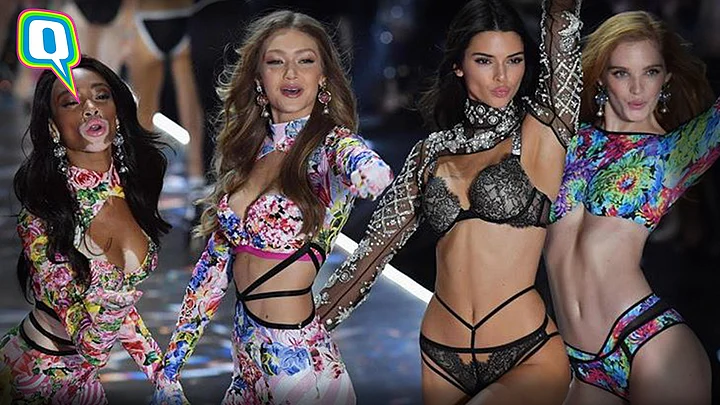For more than two decades, supermodels in flamboyantly styled lingerie have paraded down the ramp to pop music in what was once deemed one of the most-awaited events of the year – Victoria’s Secret Fashion Show.
However, Victoria’s Secret Angels will not be taking flight this year. The show stands cancelled after last year’s lower-than-ever-before ratings and the brand’s financial as well as creative slump, especially after CMO Edward Razek of the parent company L Brands came under scrutiny after he said transgender models didn’t belong in the show.
Although he apologised for his remarks soon after, a mindset like that was sure to throw off Victoria’s Secret off its game, in particular during a time when the inclusivity wave is cresting.
The VSFS was a one of its kind advertising strategy, doing wonders for the brand. It catered largely to a male audience and thereby imbibed as well as reinforced patriarchal standards of ‘desirability’ of women. But, at present, justifying leave alone glorifying a show such as this is tough for the brand.
The show doesn’t work anymore as consumers can call it out for what it truly is – farcical. The idea of what is ‘sexy’ for women has come a long way in the previous two decades and has shifted dramatically from its narrow, male-gaze oriented definition to women speaking out against beauty standards, the beauty industry and the immense pressure put on women to look a certain way as opposed to empowered agents who needn’t be limited by what patriarchy demands of them and lead their lives as per their own subjectivity.
It isn’t far-fetched to claim the VSFS has lacked innovation for quite some time. How has a mega-brand like Victoria’s Secret not evolved with the changing times and attitudes?
What didn’t help was Rihanna’s Fenty fashion show which acted as a stellar example of what Victoria’s Secret Fashion Show could have done but didn’t do – it was inclusive, inventive and celebrated all women.
Victoria’s Secret’s declining sale comes as no secret as competitors are switching to more inclusive ethos and making headway in the market. If Victoria’s Secret wants to retain its relevance, it has to rethink how it wants its models to look and emerge as a progressive and inclusive brand.
(At The Quint, we question everything. Play an active role in shaping our journalism by becoming a member today.)
